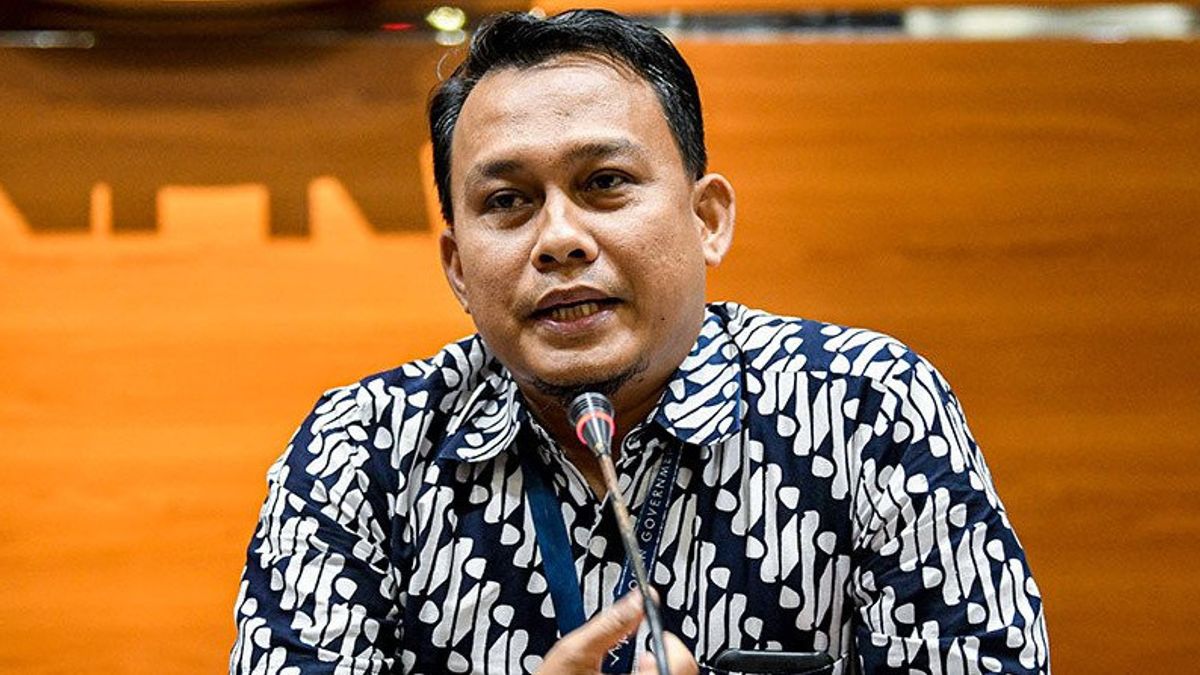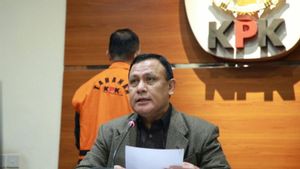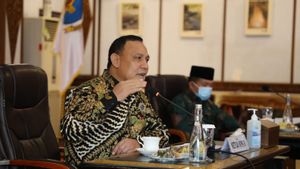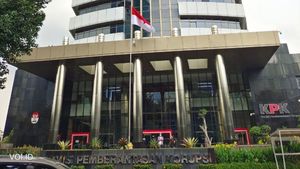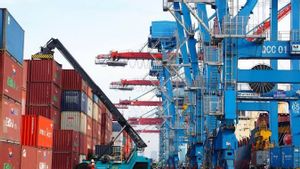JAKARTA - The results of a poll released by the Indonesian Political Indicators Survey Institute show that the level of public trust in the Corruption Eradication Commission (KPK) has experienced a downward trend over the past three years. However, the anti-corruption commission has seen the opposite, stating that there has been an increase in public optimism over the past few months.
Executive Director of Indonesian Political Indicators Burhanuddin Muhtadi said the level of public trust in the Corruption Eradication Commission (KPK) experienced a downward trend over the past three years. This is due to the revision of the law as outlined in the KPK Law Number 19 of 2019.
As of February 2019, the number of public trust in the KPK decreased to 72 percent, declining again in November 2021 to 71.1 percent. This figure began to increase slightly in February 2022 to 74 percent.
"Since 2018 was the first time the KPK (public trust, ed) detected it was quite high. Then in 2019, 2020, 2021 to 2022, the trust fell," said Burhanuddin Muhtadi in a survey presentation, Sunday, April 3.
The results of this survey were then responded to by the Acting Spokesperson for the KPK for Enforcement, Ali Fikri. Taking the positive side of the survey, he said that what is happening now has actually increased public optimism about efforts to eradicate corruption over the past few months 7 percent, and this time, it reached 73.8 percent," said Ali in a written statement, Monday, April 4.
SEE ALSO:
With this condition, Ali said, there was a significant increase in trust in his institution up to 2.1 percent. "The improvement in the assessment index shows that the public's perception of efforts to eradicate corruption has increased," he said.
Even so, the figure is judged not only because of the hard work of the KPK. Ali said this was the result of working with the anti-corruption commission, always involving and collaborating with various other stakeholders.
Furthermore, he also exhibited the results of measurements from other survey institutions which showed an increase in efforts to eradicate corruption in Indonesia.
This is reflected in the measurement of the Corruption Perception Index (GPA) which is measured on an international scale and the Integrity Assessment Survey (SPI) which is measured nationally.
"Indonesia's CPI, which was released earlier this year, has increased, both in terms of index scores and rankings. The CPI index increased by 1 point, with an improvement in the ranking of 6 levels. Then the results of the SPI, which was measured by more than 250 thousand respondents, showed an index score of 72.4, above the national average of 70," explained Ali.
"We hope that the positive results from the achievements of these three surveys will be a trigger for the KPK and all stakeholders to continue to improve the positive trend of efforts to eradicate corruption as a whole, both through education, prevention, and enforcement strategies," he added.
Although the Corruption Eradication Commission views the survey results positively, Indonesia Corruption Watch (ICW) thinks otherwise. ICW researcher Kurnia Ramadhana assessed that President Joko Widodo (Jokowi), the Indonesian House of Representatives, and five KPK leaders, especially KPK Chair Firli Bahuri, were responsible for the declining level of public trust in the KPK.
"There are three parties who are most responsible for the current situation of the KPK. The first is the president and the second is the DPR RI," said ICW researcher Kurnia Ramadhana in a written statement to reporters.
Two institutions, continued Kurnia, contributed to the decline in the KPK's trust because they had revised the KPK Law. "And include a problematic commissioner," he said.
Meanwhile, the KPK leadership, in this case, Firli Bahuri, also contributed to making people no longer trust the KPK. Because, they have done a lot of controversies, plus the number of prosecutions has decreased during their tenure.
"So it is natural that people are reluctant to put their trust in the KPK," said Kurnia.
With these various conditions, ICW assesses that the current condition of the KPK is difficult to save. Moreover, if the law that weakens this institution is still in effect.
Moreover, Kurnia considered that the KPK Law which weakened the anti-corruption commission could not be revised. The reason is that President Jokowi and the Indonesian House of Representatives did not intend to strengthen the KPK from the start.
Finally, Kurnia said, the declining level of public trust in the KPK should be the right momentum for Firli Bahuri to resign from his position. "Because he has failed to bring the KPK in a better direction," he concluded.
The English, Chinese, Japanese, Arabic, and French versions are automatically generated by the AI. So there may still be inaccuracies in translating, please always see Indonesian as our main language. (system supported by DigitalSiber.id)
